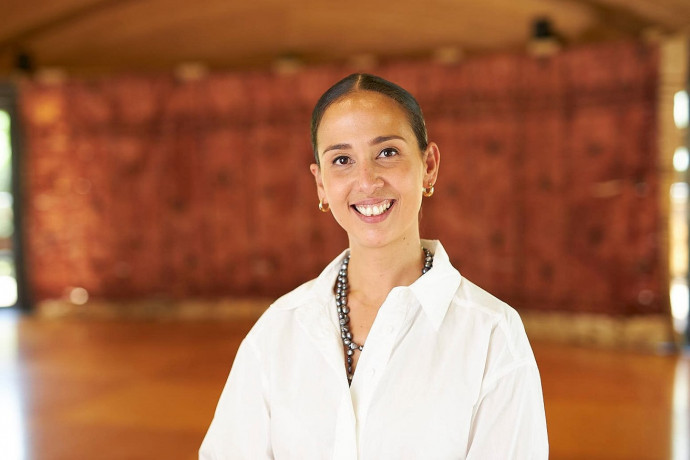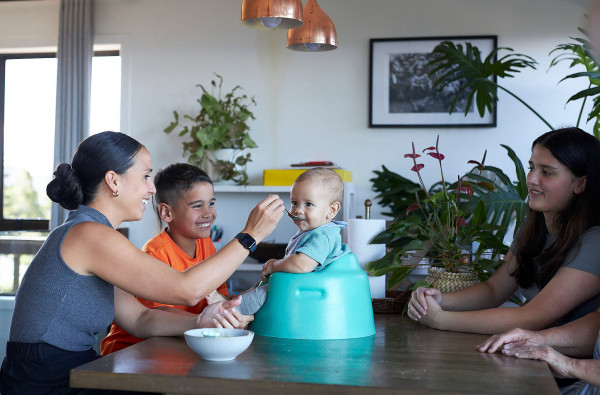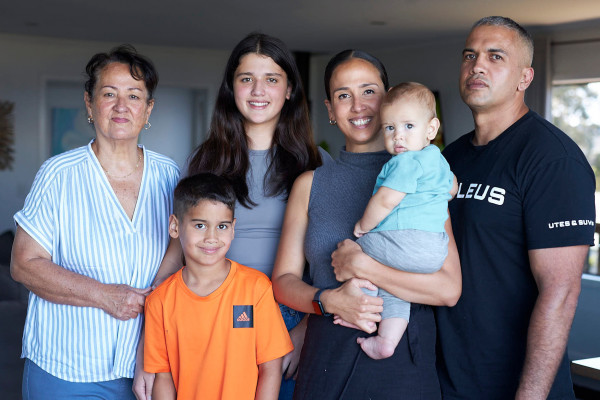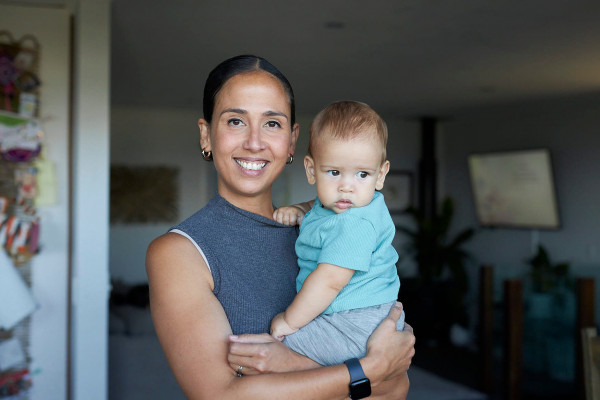Dr Moeata Keil

A need for the strong voices of Pacific women, Pacific mothers in post-separation family research drives Moeata Keil from University of Auckland Waipapa Taumata Rau in her Whitinga Fellowship.
Q. Tell us about your research.
Tālofa lava. My research looks at how Pacific parents and families make arrangements for their children after the children's parents have separated. I look at what it means to be from a collectivist culture, or to have collectivist values, and what this means in practice in terms of how decisions are made around children’s care arrangements, whether they turn to the Family Courts to help them make these decisions, as well as decisions around access financial support for children.
My Whitinga fellowship looks in particular at the role extended family members and families play in helping parents and children navigate these changes in family life.

Q. What got you started in your research?
Being Samoan, my research would inevitably have a Pacific focus, that’s where my passion lies. I'd like to say I fell into post-separation families research by accident, but it was at the suggestion of my supervisor Vivienne Elizabeth, who was one of my mentors. She approached me about doing a dissertation with her in my honours year, looking at child support policy.
It bothered me that there weren’t any Pacific researchers working in this area. I’d be reading journal articles with a Pacific focus, that weren’t written by Pacifica researchers. I was having to do a lot of that connecting work and thinking through a Pacific lens.
Through my whole degree, outside of the papers I took in Pacific Studies, I did not see a Samoan person, a Samoan mother, Samoan woman, a Pacific mother, a Pacific woman. There was an absence of a Pacific voice, and I wanted to be part of that change.
My parents separated when I was very young, so I had that personal interest as well.
Q. Did you follow a typical early career research pathway?
Yes and no. I’ve done all of my undergrad and post-grad at the University of Auckland, but I was halfway through my degree when I fell pregnant with our oldest daughter, Sophia. I took a year off, came back to finish my undergrad, and decided I should do my honours.
We had our second child, Carmine, as I was finishing my masters. In many ways, the timing of it worked really well because studying towards my masters enabled me to be at home with my son while also continuing my research.
My master's project looked at the experiences of Pacific mothers in accessing child support. I was able to meet and speak with Pacific mothers who were struggling financially, and to talk with them around the disconnect I found between their reality and yet unwillingness to access the child support they were entitled to. To learn about their decisions, and what the barriers were for them in accessing child support.

Q. How does the Whitinga Fellowship fit in?
After I submitted my doctoral thesis, I was really fortunate to secure a two year teaching contract at the University of Auckland. My contract was 0.8 teaching and 0.2 research, which is a really high intensity teaching load. Fortunately, I really enjoy teaching and interacting with students, but I was very grateful to have that 0.2 because so many people come through a PhD to find themselves without a job and unable to continue their research. Fresh out of a PhD, you’re keen and eager to publish and start new projects.
When the Whitinga fellowships were announced, my at-the-time Head of School, Simon Holdaway, shoulder tapped me. He told me the Whitinga could be perfect for me, especially as it flipped my current contract and enabled me to focus on and extend my research.
I was nervous about applying because it was a national fellowship, but my supervisors and mentors were so supportive and helpful. My colleague Sereana Naepi also hyped me up. I thought, ‘why not? At worst, it’s good grant writing experience’.
I was just really humbled and grateful, and just sort of blown away when I'd received the news that I’d been successful. Now I’m doing 0.2 teaching, and 0.8 research. The Whitinga gives me the time and space to publish journal articles, book chapters, and to develop new projects.
Each new project has been borne out of the last, every project answers questions and raises new lines of enquiry, and I knew exactly what research to pursue next – the role of extended families, which has been a constant theme through all of my research.
I'll never talk to a Pacific mother, father or child where they don't talk about extended family members. There’s a whole community rallying around and acting as a support system, but there’s very little research about this.

Q. How did Covid impact on your research?
The first lockdown was just so daunting. Covid meant we had to move everything online. At the time I was still teaching 0.8, plus my son would have been six and our daughter 11. My husband had to adapt what it meant for his work. My mother was living with us and halfway through building a house behind ours and everything had to stop. All the while worrying about our health and safety.
Looking back, it feels like the experience blurred the lines between work and family and actually better enabled me to balance work and family. It's allowed us to see each other in a very holistic way: as people with full lives, with families, with animals, and all of these other obligations and things happening outside of a work context.
Q. What difference has your Whitinga Fellowship made to you?
This fellowship has a huge part to play in allowing me to extend my research. What is more, it shows the University that I'm doing research that matters, and that institutions and government are willing to fund research in this area.
I've been lecturing since 2015, but from contract to contract, so never really sure what the next year would hold. I’ve now got a full-time lecturing position and I believe the fellowship played a part in helping me secure that. I have so much more certainty because of how the fellowship has extended me and my research.
Q. Who’s helped you on your journey?
I really like the symbolism of being a Pacific mother, a Pacific woman and an academic. Representation is so important and being able to see people that look like you in leadership and teaching roles is vital for growing Pacific success in academia. Once I figured out that this is what I wanted to pursue, there were so many people this had an impact on!
With everything I have done, my mom always sees it as a real sense of pride, as an affirmation for everything that she’s prayed for her children. She’s just very uplifting and has huge belief in me, which fuels me and is very motivating.
My husband has had to sacrifice so much for me to take this path. I was very young, 22 years old and halfway through my undergraduate degree, when we had our first child.
We’re a team, and that's what encouraged me to continue, even when contracts have been for precarious work. My husband’s been the steady force throughout. It feels it's really lovely now to lighten that load for him, for the future to look more determined.
I’ve always wanted to send a very strong message to our children that it doesn't matter the road, you determine your own story.
I'm so encouraged by my family. It's by them, for them, with them.
